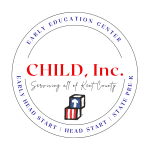Juhee Lee, MD, an attending physician with the Division of Allergy and Immunology at Children’s Hospital of Philadelphia (CHOP), offers guidance to parents on:
- Recognizing the symptoms of different conditions that cause nasal congestion
- When to call your primary care provider
- What specialists can help
Your child has a runny nose and a headache. You are worried it might be more than just a cold, but you’re not sure. How do you tell the difference between a cold, allergies and a chest infection? Should you call your primary care provider?
The different symptoms of allergies and colds or infections
“Ask yourself a few key questions,” says Dr. Lee. “The answers can help you figure out what might be causing the congestion and what you can do to help your child.”
What kind of congestion is it?
- A runny or stuffy nose with thin, clear fluid, accompanied by sneezing are common symptoms of a cold.
- A clear runny or stuffy nose and sneezing can also be seen in environmental allergies, which often also cause an itchy nose and itchy, watery, red or swollen eyes.
- Thick, green nasal discharge and a cough are typically signs of a cold or other infection such as sinusitis.
Does your child have a fever?
- If so, this indicates a cold or another type of infection. Allergies alone do not cause fever.
Is there a seasonal pattern to the congestion?
- The cold and the flu tend to hit in the fall and winter.
- Recurring nasal congestion in the spring, summer or fall, especially if it happens every year, could indicate allergies to pollen from trees, grass or weeds.
- Chronic year-round nasal congestion could be a sign of allergy to dust mites or pets.
- Chronic nasal congestion can also be seen in children with enlarged tonsils and adenoids.
Does your child snore or have interrupted breathing during sleep?
- Snoring can be a result of nasal congestion from either colds or allergies.
- Enlarged tonsils and adenoids are another big cause of snoring in children and can cause interrupted breathing during sleep (obstructive sleep apnea).
When to call your primary care provider
If your child is 3 months old or younger, call your primary care provider whenever your child has nasal or chest congestion.
Symptom Checker
If your child is more than 4 months old, call your primary care provider if your child:
- Has had thick nasal discharge lasting more than 10 days
- Has a barking cough (a sign of croup)
- Coughs with exercise (a sign of asthma or other problems)
- Has a wheezing cough (a sign of pneumonia or other chest infection)
- Is coughing up thick greenish-yellow phlegm (a sign of pneumonia or other chest infection)
- Has a fever that rises repeatedly to 104 degrees Fahrenheit or higher
- Has a fever with temperature higher than 100.4 degrees Fahrenheit for more than three days (or for more than 24 hours if your child is less than 2 years old)
- Has ear pain
- Has a severe headache
- Has swelling or dark circles around the eyes
- Is having trouble sleeping
- Has symptoms of allergies that are interfering with daily activities and you want to know if a specialist might be able to help
Seek emergency care if your child:
- Is having trouble breathing or is taking short, rapid breaths
- Has bluish lips or fingernails (a sign of low oxygen level in the blood)
Treatments are different depending on the cause of the congestion. Your child’s primary care provider can tell you what steps to take to relieve symptoms and help your child get better.
What specialists can help
Your child’s pediatrician can refer you to an appropriate specialist if necessary, depending on how serious your child’s condition is and what is causing the health problems. Depending on the condition, your child may need to see more than one specialist. Specialists who help with medical issues related to congestion include:
- Allergists, who identify the causes of allergic reactions, advise on ways to eliminate those triggers, and advise on or prescribe treatments. Allergists diagnose and treat asthma.
- Otolaryngologists, also known as Ear, Nose and Throat (ENT) doctors, who treat patients with chronic nasal congestion or breathing and swallowing problems caused by enlarged adenoids or tonsils.
Pulmonologists, who treat patients with breathing problems and other medical issues relating to the lungs. Pulmonologists diagnose and treat conditions such as asthma, cystic fibrosis and primary ciliary dyskinesia (PCD), a rare cause of chronic nasal congestion and chronic cough.

